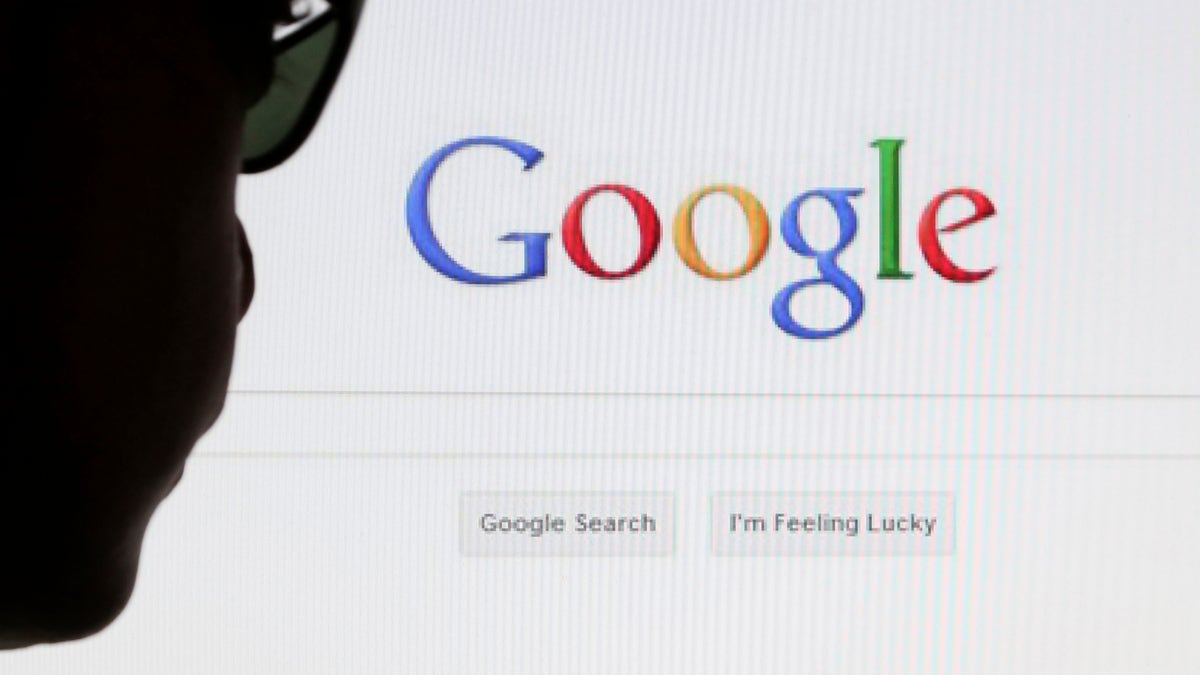
A computer user poses in front of a Google search page in this photo illustration taken in Brussels May 30, 2014. Google has taken the first steps to meet a European ruling that citizens can have objectionable links removed from Internet search results, a ruling that pleased privacy campaigners but raised fears that the right can be abused to hide negative information. REUTERS/Francois Lenoir (BELGIUM - Tags: POLITICS SCIENCE TECHNOLOGY) - RTR3RK9T (REUTERS/Francois Lenoir)
SAN FRANCISCO – Google is wielding the power of its dominant Internet search engine to push more websites into protecting the people using their services.
The move, announced late Wednesday, involves a change in Google's closely guarded formula for determining the rankings of its search results.
Websites that automatically encrypt their services will now be boosted higher in Google Inc.'s recommendation system. For now, encryption will remain a small factor in Google's ranking formula, but the Mountain View, California-based company says it may put greater emphasis on the security measure in the future. It wants to make it tougher for government spies and computer hackers to grab the personal data of unwitting Web surfers.
Users can tell if a website is encrypted if its address begins with "https."
Google beefed up security of its search engine and popular Gmail service after former National Security Agency contractor Edward Snowden revealed that the U.S. government has been vacuuming up personal data. The surveillance programs exploited gaping holes in unencrypted websites.
When websites are encrypted, it's more difficult for interlopers to sweep up data transmitted over unsecured Wi-Fi networks in homes or widely trafficked areas such as airports or stores.
Online security is a hot-button topic amid the Snowden revelations and a series of high-profile hacking attacks that filched credit card numbers, passwords and other personal information. In the most recent scare, online security firm Hold Security this week revealed that it had discovered a gang of Russian hackers have stockpiled more than 1.2 billion passwords stolen from more than 400,000 websites.
Google has a vested interest in making people feel more secure online because the company makes most of its money from ads that are shown next to search results and other Web content. If people were to become leery of Web surfing because of security concerns, it could crimp Google's profits.
Even so, encryption is unlikely to become the most important factor in Google's website-ranking equation. The quality of a website's content and its relevance to a search request remain among the most influential ingredients.
Websites, though, are constantly looking for every edge that they can get to ensure they rank high on Google's search results to give them a better chance of attracting traffic and making money. Google processes about two out of every three search requests in the U.S. and an even higher percentage in Europe, so its rankings can make or break websites.
Encrypting websites will cost their owners extra money, but they could lose even more if they fall out of Google's favor.
Even if the entire Web becomes encrypted, it still wouldn't be enough to prevent security breaches caused by inadequate protection of the website servers that store credit card numbers, Social Security numbers, passwords and other sensitive data.




















